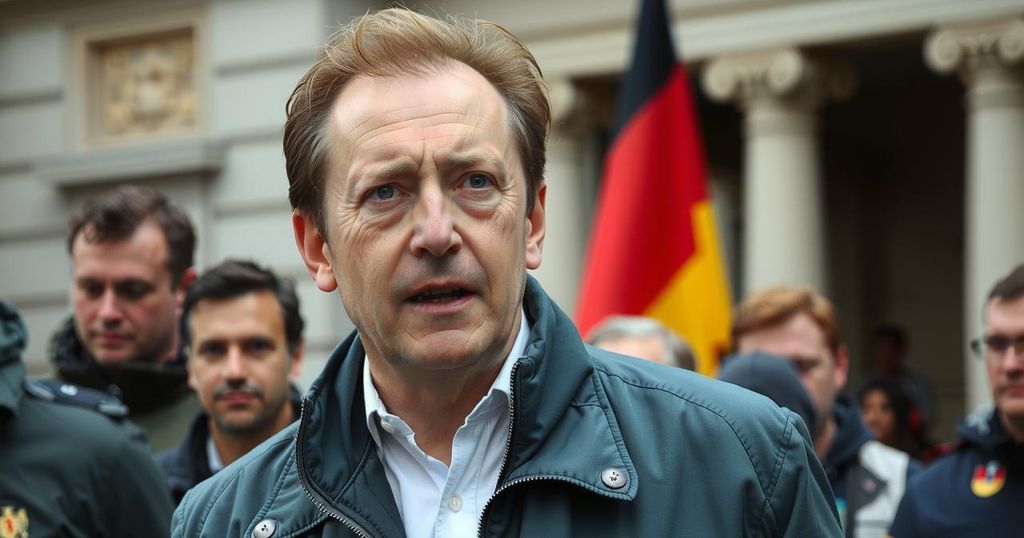Elon Musk endorses the far-right AfD party in Germany, calling it a hope for revitalization amidst economic collapse. His op-ed led to protests from media staff and criticism from political leaders, raising questions about media influence and foreign intervention in domestic politics. The article discusses the potential implications of Musk’s support on Germany’s political landscape as elections approach.
Elon Musk, the prominent U.S. billionaire, has publicly declared his support for Germany’s far-right political party, the Alternative for Germany (AfD), in a recent op-ed for the Welt am Sonntag. In his article, Musk suggested that the AfD represents a crucial opportunity for economic revitalization and preserving German cultural identity, which he believes is under threat due to uncontrolled immigration. He described the party as a beacon of hope amidst what he perceives as an impending economic and cultural collapse in the nation. Furthermore, Musk challenged the categorization of the AfD as extremist, citing the party leader Alice Weidel’s relationship as evidence that the party does not fit traditional extremist stereotypes.
The publication of Musk’s op-ed has sparked significant backlash from various political figures and media organizations in Germany. Friedrich Merz, the center-right candidate for chancellor, criticized Musk’s intervention as “intrusive and pretentious,” while Lars Klingbeil of the Social Democrats likened Musk’s influence to that of Vladimir Putin, accusing him of seeking to undermine German democracy. Amidst this turmoil, the editorial staff of Welt protested against the article’s publication, leading to the resignation of a senior editor. The controversy surrounding Musk’s comments underscores the tension between press freedom and political influence, raising important questions regarding the role of media in shaping political discourse.
Musk’s backing of the AfD also raises concerns regarding his motivations and potential future implications for both German and global politics. His emphasis on the AfD’s economic agenda aligns with his interests, particularly related to the Tesla factory in Brandenburg, which stands to benefit from proposed deregulations. Critics argue that Musk’s support for the AfD may contribute to normalizing extremist ideologies in Germany, further complicating the political landscape as elections approach. This situation highlights the complex interplay of media influence, political ideologies, and economic interests in contemporary Europe.
The article revolves around the implications of Elon Musk’s endorsement of the Alternative for Germany (AfD) party in the context of the upcoming German elections. The AfD has increasingly gained popularity among voters, currently polling at around 20%. The political landscape in Germany is characterized by significant polarization, where traditional parties are experiencing challenges from far-right movements. Furthermore, Musk’s move has raised questions about the influence of foreign entities on German domestic politics and the boundaries of journalistic integrity in reporting such endorsements. This situation is set against a backdrop of heightened scrutiny on the far-right’s rise in Europe and the need for responsible political discourse.
In conclusion, Elon Musk’s support for the AfD has ignited a fierce debate within Germany regarding political influence, media responsibility, and the implications of endorsing far-right ideologies. While Musk positions the AfD as essential for revitalizing the country, many political figures and journalists have fiercely criticized his remarks, describing them as detrimental to democratic integrity. As the elections approach, the impact of such endorsements on public perception and the role of media will significantly shape Germany’s political trajectory.
Original Source: www.dw.com






